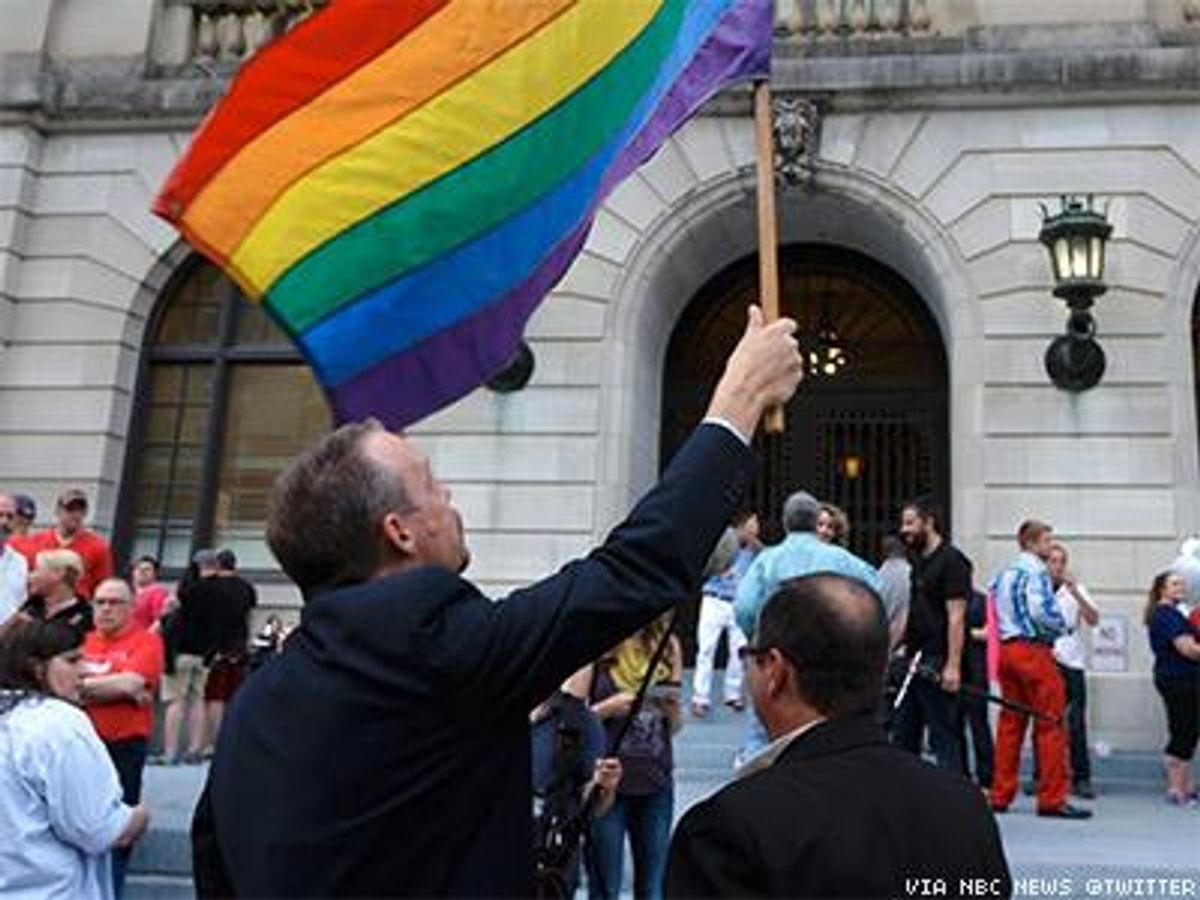The recent victory in Mississippi is more than just a win for equality and fairness -- it's proof that marriage equality advocates have locked onto the winning arguments that will persuade courts to overturn bans on same-sex marriage.
Last week, attorney Roberta Kaplan presented oral arguments before U.S. District Court Judge Carlton W. Reeves in Mississippi. He questioned her about the logical limits of marriage, what sorts of protections should be covered by the Fourteenth Amendment, and whether federal courts should even be involved in the issue of marriage.
And when Reeves delivered his ruling on Tuesday of this week, it was clear that Kaplan's responses were highly influential.
Reeves was clearly listening when Kaplan cited the 1967 decision in Loving v. Virginia, where the U.S. Supreme Court overturned bans on interracial marriage. "The State does not contend in its argument before this court that its powers to regulate marriage are unlimited notwithstanding the commands of the Fourteenth Amendment," Kaplan quoted from the Loving decision, adding, "the Supreme Court made it clear that even if [the state of Virginia] had made the argument that the State of Mississippi is making today, that it has unlimited or exclusive authority to regulate marriage, they couldn't make that argument."
During oral argument, Reeves pressed Kaplan on this point. "Whenever the Fourteenth Amendment was passed, the conception... of same-sex marriage wasn't thought about, conceptualized in anything about liberty or anything else," he said.
"No question that the drafters of the Fourteenth Amendment had no concept that probably either -- either that gay people existed or that gay people could get married," Kaplan replied. But "the drafters of the Fourteenth Amendment totally had no concept that there would be desegregation in public facilities... that doesn't change the law," she explained. "It doesn't change the commandments of equal protection and due process."
Reeves clearly agreed that century-old mindsets are less important than upholding the law as it is written. "In Loving, Lawrence, and Windsor, the restrictions popular in those times yielded to our egalitarian traditions of marriage, privacy, and dignity," he wrote in his decision. "'Tradition' will not suffice to uphold Mississippi's marriage ban."
This echoes the argument made by Kaplan last week. "The Supreme Court stated over and over again," she told the court, "that state limitations on the right to marry must still comply with the United States Constitution."
Reeves also asked whether laws against polygamy or incest would have to be overturned if those banning same-sex marriage were to fall. Kaplan answered, "I've been litigating these issues now for a very long time, [and] people have made this argument to suggest that there's going to be this huge groundswell of litigation about polygamy if we win. And it's never happened and it, frankly, never will happen."
Reeves incorporated that response into his ruling. "Proponents of the above notions have had the opportunity to prove these theories in court, but failed," he wrote, calling the incest and polygamy claims "stigmatization" and "false stereotypes."
But perhaps the most important argument that Kaplan made was that the right to marry is fundamental for all people, not just heterosexuals.
Referring to the 1997 case Washington v. Glucksberg, which established a threshold for determining fundamental rights, Mississippi attorney Justin Matheny said, "the test is when you carefully describe the right, is that a right that's deeply rooted in the nation's history and tradition? ... The right to same-sex marriage is not something that qualifies under the Glucksberg test as a fundamental right."
Kaplan countered that argument. "The State would argue that there's only a fundamental right to marry a person of the opposite sex. We contend that the fundamental right to marry involves precisely the kinds of personal autonomy discussed in Lawrence," she said.
Again, Reeves agreed with Kaplan. "The question is not whether there is a right to same sex marriage," he wrote, "it is whether gay and lesbian people, like any other group of people, have 'the freedom of choice to marry.'"


















































































